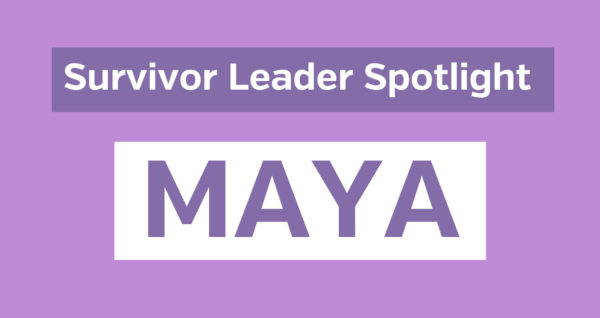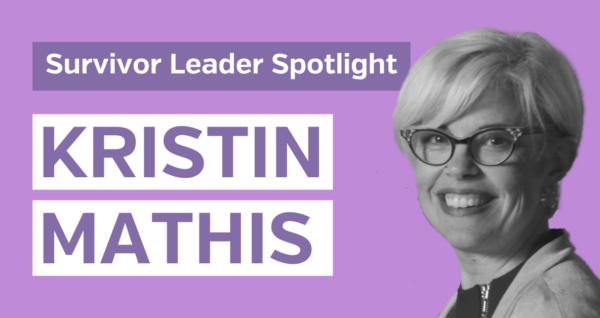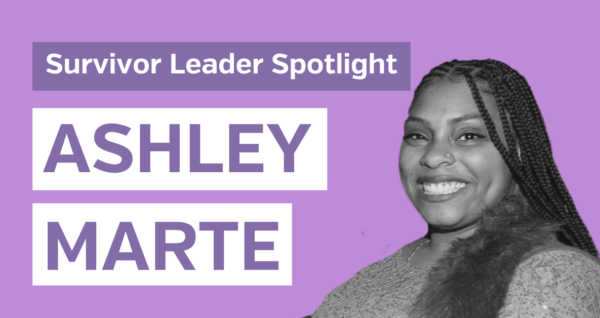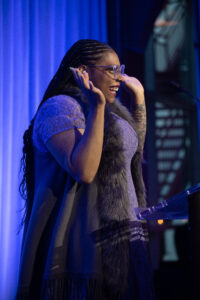“It’s time to stop domestic violence, which is not just physical, but also mental and emotional.”
This Domestic Violence Awareness Month, we’re spotlighting some of our incredible Survivor Leaders, former clients of Sanctuary who go through a 12-week training and certification course to prepare them to make system-wide change through advocacy, training, program development, and working directly with other survivors.
Maya’s Survivor Journey
Maya has had a hard and difficult life, being exposed to domestic violence more than once. She’s a strong, caring advocate for women and children; always willing to help someone in need.
Survivor leadership is an essential aspect of Sanctuary’s work. Can you describe how survivor-led initiatives have made a difference in the fight against domestic violence?
It opened my eyes to what needs to be addressed. I have taken many classes on different forms of domestic violence along with many other aspects of violence. It made me more impassioned to make a change.
Can you tell me about some recent advocacy work you’ve been involved in, and which moments have been involved in, and which moments have been the most impactful to you?
I made connections with the head of a Family Justice Center (FJC). I spoke out at Denim Day on sexual assault to explain what happened to me and what needs to be changed. I connected with women from the Women’s Bar association, speaking/learning what is down the pipeline. I have become involved with many Sanctuary committees to make a change.
How has your experience as a survivor influenced your approach to supporting others who have experienced gender-based violence?
Since I’m a survivor forever and now dealing with PTSD, I know how to address everyone with empathy along with letting them tell their stories or just sitting with them. It opened my eyes on what still needs to be done in making a change.
What challenges have you encountered in your journey towards healing and advocacy, and how have you overcome them?
Dealing with a broken family and going through court as an adult. Dealing with a broken family, I have distanced myself from certain members. When I was a child is when the domestic violence laws first came about, and I am still dealing with the broken court system and orders of protection which I had to deal with as a child and adult. I continue to learn different types of therapy along with grounding myself.
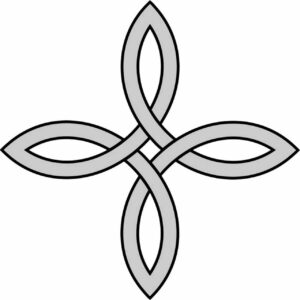
What advice do you have for other survivors who may be hesitant to come forward or ger involved in advocacy work?
It’s ok to come out and help others instead of letting people suffer. Everyone needs to know what happens behind closed doors. So much must still needs to be done.
In your opinion, what are some of the most significant barriers or misconceptions that still exist when it comes to addressing domestic violence?
It’s not believed. People misconstrue that those that know the survivor or victim will probably get harmed too. People don’t understand the difference of abuse.
What are some ways that people can get involved or support survivors through DVAM and beyond?
They can be compassionate and help in the court process as a support. Reach out to advocates, NYPD (there domestic violence offices in each precinct) and just talk about it. There are different forms to look out for and there are many different power wheels. On Purple awareness days in October, wear purple. There are many ways to volunteer at domestic violence places all year long.
Is there a particular message or call to action you’d like to convey in honor of DVAM?
There needs to be more consistency with the laws and procedures. People need to speak out against it as it’s not ok. I have been a strong survivor since I was a child. It’s time to help those that are still in jails to protect themselves. It’s time to stop domestic violence which is not just physical, but also mental and emotional.
“It’s time to stop domestic violence which is not just physical, but also mental and emotional.”
Join Maya in standing with survivors of gender violence. Your gift supports Sanctuary’s life-saving work with thousands of families escaping abuse.
